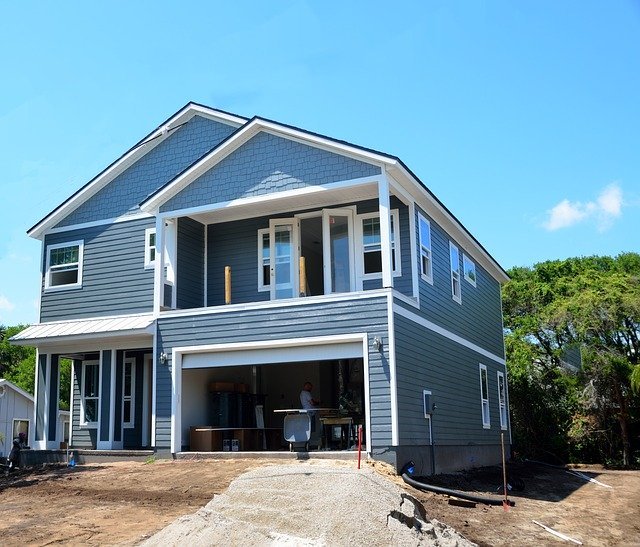
It could end in disaster if you don’t know what you’re doing.
If you are struggling to estimate monthly mortgage payment costs, think about a loan pre-approval. It only takes a little shopping around to determine how much you’re personally eligible for in terms of price range. You will be able to figure out what your monthly payments will be by doing this.
Get pre-approved for a mortgage to find out what your monthly payments will cost you. Shop around and find out what you can be spending on when getting this kind of a loan. Once you know this number, you will have a better understanding of the expenses involved.
Avoid borrowing the most amount of money that is offered. You are the best judge of the amount you can afford to borrow. The lender’s offer is based only on the numbers. Consider your lifestyle, the way your money is spent and the amount you can reasonably afford.
Avoid accepting the most amount for which you qualify. Consider your life and what you are able to be comfortable.
Make sure your credit is good if you are planning to apply for a mortgage. Lenders closely analyze credit history to minimize risk. Repair your credit if it’s poor to increase your chances at getting a mortgage.
You must have to have a work history in order to get a mortgage. A lot of lenders need at least 2 steady years of solid work history in order to approve a mortgage loan. Changing jobs frequently can also disqualify you from a mortgage. You never want to quit your job during the application process.
Find government programs to assist you if this is your first time buying a home. There are a lot of government programs that help out with costs for closing, helping get a mortgage with a lower interest rate, or someone who can help you with your credit score.
Many purchasers are afraid to discuss their home because they do not understand that they still may have options to renegotiate the terms of your loan. Be sure to discuss all your options with your mortgage provider and about any available options.
Try to hire a consultant to help you through the mortgage process. A consultant knows all the ins and outs of home mortgages and can assist you in getting the best rates and terms. They make sure the loan terms are fair.
If you are having difficulty refinancing your home because you owe more than it is worth, keep trying to refinance. The Home Affordable Refinance Program (HARP) has been revamped to let homeowners to refinance their home regardless of how underwater they are. Speak with your lender to find out if HARP can help you out.If the lender isn’t working with you, look elsewhere.
Try to make extra payments on thirty year mortgages. This will help pay down principal. This will help you pay your loan even faster and reduce your total interest amount.
Know what terms you want before trying to apply and be sure they are ones you can live within. If you take on more house than you can afford, it can cause problems.
Before signing any loan paperwork, ask for a truth in lending statement. That ought to include closing costs and other fees you need to pay. Even though most lending institutions will let you know exactly what is required of you, there are some companies that will hide this information from you.
Don’t despair if you’ve been denied a loan application that’s denied. Every lender has their own criteria you need to satisfy to qualify. This means that it can make sense to apply with a bunch of different lenders to get optimal results.
Speak with many lenders before selecting the one you want to borrow from. Check reputations online and scrutinize their deals for hidden rates and fees. When you have all the details. you can select the best one.

Make extra monthly payments whenever possible. Additional payments will be applied directly to the principal balance.
If you are having troubles with your mortgage, get some help. For example, find a credit counselor. The HUD (Housing and Urban Development) has counselors all over the country. These counselors offer free advice to help you prevent a foreclosure. To find a counselor in your area, check the HUD website or call them yourself.
This will itemize the closing costs as well as fees. Most companies are honest about these fees, there are lenders that may try to include hidden charges in your closing costs.
Try lowering your balance on different accounts instead of having a few accounts with an outstanding balance. Your balances should be less than 50 percent of the credit limit on a credit card. It is best if your balances total thirty percent or under.
Be sure to check out multiple financial institutions before choosing one to be your mortgage so you have a lot of options. Check out reputations with people you know and online, their rates and any hidden fees in their contracts.
Determine which type of mortgage you need. There are many types available. Understanding their differences makes it simpler to figure out what you really need. The best person to ask about this is your lender. The lender can explain your options.
If you are struggling to pay your mortgage, then find assistance. Counseling might help if you are struggling. There are agencies nationwide that offer counseling under HUD all over the country. These counselors who have been approved by HUD offer free advice that will show you prevent a foreclosure. Call HUD or visit HUD’s website for a location near you.
Get rid of as many debts as you can before choosing to get a house. You must be absolutely certain you can live up to the responsibility of making your mortgage payments. You’re going to have a much simpler time accomplishing this if your debt is minimal.
Try to have balances that are lower than 50% of the credit limit you’re working with. If you can, having a balance below 30 percent is even better.
Learn how to detect and avoid shady lenders. While many are legitimate, there are just as many that may try to take advantage of you. Avoid anyone who uses smooth talk or tries to get you to sign paperwork you don’t understand. Never sign if the rates appear too high or too low. Do not go to a lender that claims that bad credit scores aren’t a problem. Finally, never lie on an application, and watch out for lenders who tell you otherwise.
Reduce debts before starting the home buying process. A home mortgage will take a chunk of your money, no matter what comes your way.Having minimal debt will make it easier to do just that.
Check online to find out about mortgages available to you. It used to be the case that mortgages were only possible via retail locations, but that’s all changed. Many solid lenders only work online, lowing their overhead costs. This allows them to offer lower rates and faster approval times.
Balloon mortgages are among the easiest loans to get approved.This is a shorter term loan, and the balance owed on the mortgage needs to be refinanced when the term of the loan expires. This is a risky due to possible increases in rates or your financial situation can get worse.
Before looking at mortgages, improve your credit report. As the mortgage loan guidelines get stricter, you need to make sure your credit score is relatively healthy. Lenders will need to know with some certainty how you will repay that loan. So before applying, make sure you spruce up your credit.
As you can see, there is a lot to know about home mortgages, but with this information you are now prepared to apply. Use this advice as a guide. The next step is locating the lenders where you could put this good information to use.
Interest rates on mortgages are important to consider, but they are not the only thing to consider. Pay attention to all fees that come with any lender’s loans. Consider points, the loan type and all closing costs. You should ask for quotes from multiple banking institutions prior to making a decision.






